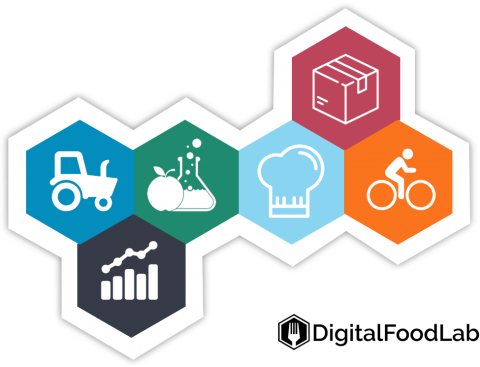I think there is a little confusion about FoodTech being only about startups. Startups are creating new business models, products or services, which is cool in itself, but actually, it matters more than just for the sake of innovation. They are creating the conditions of a very consequential and mostly upcoming food revolution. Let’s go back a bit:
The main drivers of change behind the food revolution:
Food is mostly an undisrupted industry, but stars are aligned for change as the food value chain appears more and more unsustainable due to its:
- impact on climate: it is now well understood that our food system has a deep impact on climate change. It has been extensively shown that this impact increases steeply as people reach a certain level of income. As more and more people around the world get out of poverty and rich medium-income status (which is wonderful news by itself), the impact of food on our planet gets unbearable.
- impact on our health: the link between food and health is both old and new, as the first dietary goals in the US which were only released in 1977. However, we now see the impact of processed foods on public health, and we know (even if not exactly how) that certain foods are better than others at protecting our health. As the world gets older, finding ways to make our diet contribute to healthy ageing becomes even more urgent.
- workforce shortages: while most industries are automated, food (from farm to restaurants to delivery) still require a massive and growing workforce.

But why FoodTech? Shouldn’t it be about corporations and researchers?
These three drivers are, for us, the reasons behind the food revolution that we are starting to experiment with. This leads to 5 “mega trends” that we often talk about: sustainable proteins, resilient farming, smart retail, food automation and personalised foods. On these trends, where is the disruptive innovation coming from? from large corporations? No. It’s coming from innovative young ventures, some of them using research being conducted inside universities.
It’s not a critique, but as for the pharma industry, over the years, most food corporations (with some exceptions among very large companies or some specialists along the value chain) have outsourced long-term research to universities. And again, as for pharma, the best way out of this is to watch for these young ventures, finance them, emulate them, partner with them, and eventually buy them. For a food corporation, not doing so is taking at least two risks: that your competitors outpace you fast if they get to hold of something really disruptive and that these startups replace you.
So, in a word, yes, the future of food is (mostly) about FoodTech and startups. But it is also about how the ecosystem surrounding them is either supportive or not. This is how some countries and regions that were not traditional food hubs are becoming FoodTech hubs. This, in turn, means that these new places may become hubs for the future of food and that older hubs may quickly diminish in relevance.
Are you working on solutions to build the future of food? Are you are working inside a corporation that needs to think about opportunities and threats created by this food revolution? In both cases, contact us here!







